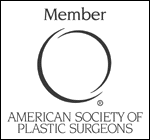Dr. Nalluri has been rigorously trained to skillfully and safely perform a variety of plastic surgery procedures. Read more about Dr. Nalluri
Find Us:
Raja Nalluri, M.D.
6118 S. Tamiami Trl
Sarasota, FL 34231
941-752-7842
click here for maps and directions
Tampa Office
709 W Bay St.
Tampa, Florida 33606
941-752-7842
click here for maps and directions
Patient Library
Chin Surgery
Some people are dissatisfied with the appearance of their chin because it is not prominent enough and appears "weak," is too prominent, or is simply disproportionate to the rest of the face. Chin surgery offers an alternative for reshaping and balancing the chin. It is often coupled with nose surgery, face lifts, or other facial plastic surgeries in order to optimize the balance of facial features.
Procedure
There are two primary types of chin surgery: 1) chin augmentation, which builds up and expands the chin, and 2) chin reduction, which reduces the size of the chin's projection. In chin augmentation, a surgeon makes a small incision in the natural crease under the chin or in the mouth. Tissue is gently stretched and a synthetic implant is inserted. In chin reduction, a small incision is made under the chin in or in the mouth. The surgeon reshapes the chin by either sculpting or repositioning the bone and soft tissue. If required, liposuction may be used to remove excess fat. In both cases, fine sutures are used to close the incision. Chin surgery generally takes between 1 and 3 hours.
Recovery
The surgeon applies a dressing on the area, which is left in place for one or two days. Eating and chewing is restricted for the first few days following surgery, requiring soft food or a liquid diet. Patients may experience some swelling and bruising after the surgery as well as mild tenderness. These symptoms generally subside over the course of 2 to 6 weeks. Most patients are able to return to normal activity within 10 days to 2 weeks. However, there may be some limits to physical activity for 4 to 6 weeks following the surgery.
There is the possibility of infection following any surgery. Your surgeon will likely prescribe antibiotics to avoid infection in addition to any pain medication. Bruising and swelling is common for the first few days following surgery. In rare cases, an implant may shift or become unaligned, requiring a second, corrective surgery.
Procedure
There are two primary types of chin surgery: 1) chin augmentation, which builds up and expands the chin, and 2) chin reduction, which reduces the size of the chin's projection. In chin augmentation, a surgeon makes a small incision in the natural crease under the chin or in the mouth. Tissue is gently stretched and a synthetic implant is inserted. In chin reduction, a small incision is made under the chin in or in the mouth. The surgeon reshapes the chin by either sculpting or repositioning the bone and soft tissue. If required, liposuction may be used to remove excess fat. In both cases, fine sutures are used to close the incision. Chin surgery generally takes between 1 and 3 hours.
Recovery
The surgeon applies a dressing on the area, which is left in place for one or two days. Eating and chewing is restricted for the first few days following surgery, requiring soft food or a liquid diet. Patients may experience some swelling and bruising after the surgery as well as mild tenderness. These symptoms generally subside over the course of 2 to 6 weeks. Most patients are able to return to normal activity within 10 days to 2 weeks. However, there may be some limits to physical activity for 4 to 6 weeks following the surgery.
There is the possibility of infection following any surgery. Your surgeon will likely prescribe antibiotics to avoid infection in addition to any pain medication. Bruising and swelling is common for the first few days following surgery. In rare cases, an implant may shift or become unaligned, requiring a second, corrective surgery.



